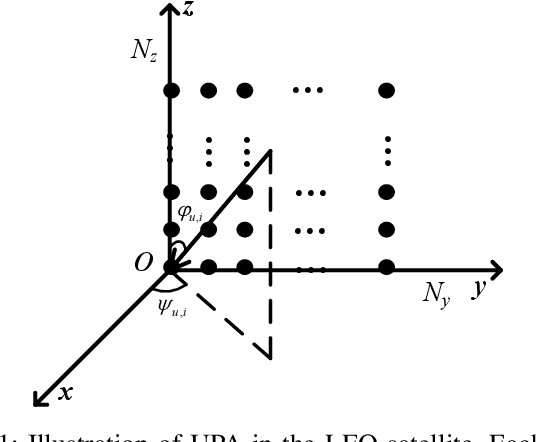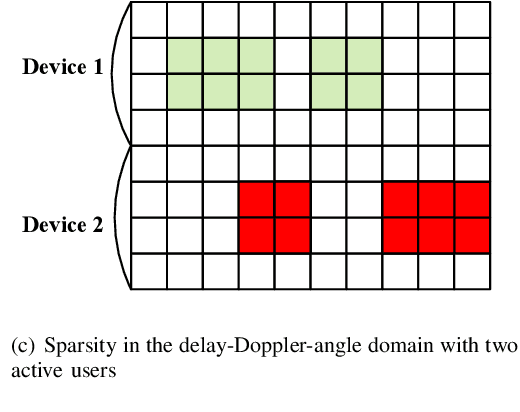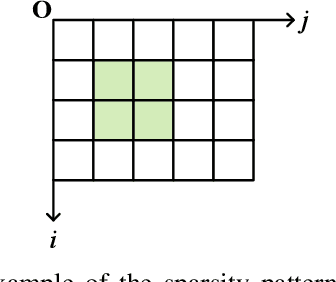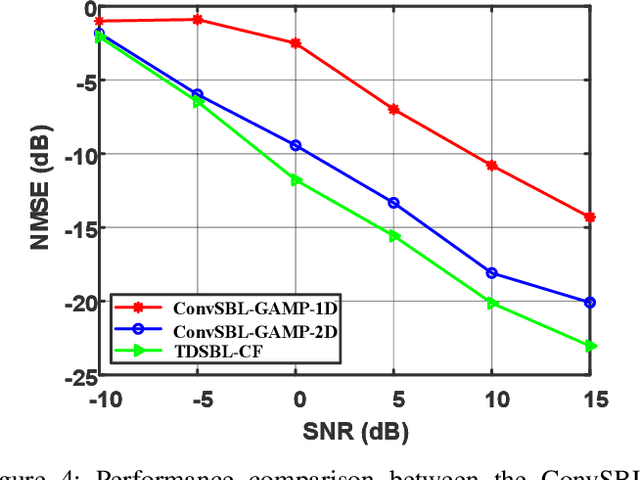Random Access with Massive MIMO-OTFS in LEO Satellite Communications
Paper and Code
Feb 26, 2022



This paper considers the joint channel estimation and device activity detection in the grant-free random access systems, where a large number of Internet-of-Things devices intend to communicate with a low-earth orbit satellite in a sporadic way. In addition, the massive multiple-input multiple-output (MIMO) with orthogonal time-frequency space (OTFS) modulation is adopted to combat the dynamics of the terrestrial-satellite link. We first analyze the input-output relationship of the single-input single-output OTFS when the large delay and Doppler shift both exist, and then extend it to the grant-free random access with massive MIMO-OTFS. Next, by exploring the sparsity of channel in the delay-Doppler-angle domain, a two-dimensional pattern coupled hierarchical prior with the sparse Bayesian learning and covariance-free method (TDSBL-FM) is developed for the channel estimation. Then, the active devices are detected by computing the energy of the estimated channel. Finally, the generalized approximate message passing algorithm combined with the sparse Bayesian learning and two-dimensional convolution (ConvSBL-GAMP) is proposed to decrease the computations of the TDSBL-FM algorithm. Simulation results demonstrate that the proposed algorithms outperform conventional methods.
 Add to Chrome
Add to Chrome Add to Firefox
Add to Firefox Add to Edge
Add to Edge